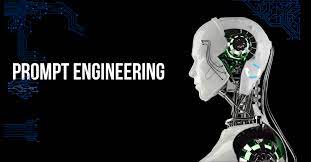Introduction
Prompt Engineering is a term used to describe the process of creating custom prompts for AI language models, such as Generative Pretrained Transformer (GPT), to generate content specific to a particular use case. It has emerged as a solution to the limitations of GPT, which can lead to inaccuracies and inconsistencies when applied to new contexts. The development of AI writing jobs has come a long way since the first experiments in the 1950s, and GPT has revolutionized the field in recent years.

In this article, we will explore the history of AI writing and the emergence of Prompt Engineering, its role in AI development, and its potential impact on the future of AI-generated content.
The Emergence of Prompt Engineering
Prompt Engineering has emerged as a response to the limitations of GPT, which despite being a groundbreaking technology, has its drawbacks. GPT models generate language based on the patterns and relationships found in the training data, which can lead to inaccuracies and inconsistencies when applied to new contexts. Prompt Engineers use their expertise to create custom prompts that can guide GPT models to produce more accurate and relevant content for specific use cases.
Prompt Engineering also represents an evolution in the field of AI writing jobs. Traditionally, AI-generated content has been limited to simple tasks such as automated news summaries or chatbot conversations. However, with the emergence of Prompt Engineering, AI-generated content can now be tailored to more complex and specific use cases, such as content creation for marketing, legal, or technical writing. This has opened up new possibilities for businesses looking to automate their content creation processes and improve their efficiency.
The Responsibilities of a Prompt Engineer
Prompt Engineers play a crucial role in AI development by creating custom prompts that guide language models, like GPT, to generate content specific to a particular use case. Their responsibilities include:
- Creating custom prompts for specific use cases: Prompt Engineers work closely with businesses and organizations to understand their content needs and develop prompts that align with their objectives. These prompts are designed to guide the language model to produce accurate and relevant content for the specific use case.
- Testing and refining prompts: Prompt Engineers continuously test and refine their prompts to ensure they produce high-quality content. This involves analyzing the output of the language model and making adjustments to the prompts to improve its accuracy and relevance.
- Collaborating with other AI specialists: Prompt Engineers work closely with other AI specialists, such as data scientists and machine learning engineers, to ensure the language models are optimized for the specific use case. They also collaborate with content creators and subject-matter experts to ensure the generated content meets the desired standards.
By performing these responsibilities, Prompt Engineers help businesses and organizations automate their content creation processes and improve their efficiency.
The Skill Sets of a Prompt Engineer
Prompt Engineering is a highly technical field that requires a combination of technical and soft skills. The skills required for Prompt Engineering include:
- Technical skills required for prompt engineering: Prompt Engineers must possess a strong understanding of natural language processing, machine learning, and programming languages such as Python. They should also be familiar with various AI language models, such as GPT, and have experience with text preprocessing techniques, data cleaning, and data analysis.
- Soft skills required for collaboration and communication: Collaboration and communication are essential skills for Prompt Engineers. They must be able to work closely with other AI specialists, content creators, and subject-matter experts to understand the needs of the business and develop effective prompts. They should also have strong project management skills to ensure projects are completed on time and within budget.
- Training and education for prompt engineering: Prompt Engineers typically have a background in computer science, artificial intelligence, or a related field. They may have a degree in these areas or have completed relevant training courses or certifications. Continual learning is also essential for Prompt Engineers, as they must stay up-to-date with the latest advancements in AI and natural language processing.
By possessing the required technical and soft skills and keeping up with the latest advancements in AI, Prompt Engineers can create effective prompts that guide language models to generate high-quality content for specific use cases.
The Benefits of Prompt Engineering
Prompt Engineering provides several benefits for businesses and organizations, including:
- Improved accuracy and efficiency of AI-generated content: By creating custom prompts, Prompt Engineers can guide language models like GPT to produce more accurate and relevant content for specific use cases. This leads to better quality content that meets the needs of businesses and their customers. Moreover, by refining the prompts, the efficiency of the AI-generated content creation process can be improved, reducing time and resources required.
- Customization for specific use cases: Prompt Engineering allows businesses to tailor their AI-generated content to specific use cases, such as marketing, technical writing, or legal documents. This customization ensures that the content meets the desired standards and effectively communicates the intended message to the target audience.
- Cost savings for businesses: The automation of content creation through Prompt Engineering can help businesses save time and resources. This means that the cost of content creation is reduced while the quality of the content is improved. This is especially beneficial for businesses that require a large amount of content creation and publication.
By leveraging the benefits of Prompt Engineering, businesses can improve the accuracy and efficiency of their content creation processes, better communicate their message to their target audience, and save on costs associated with content creation.
The Future of Prompt Engineering
Prompt Engineering is a rapidly growing field with a bright future. Here are some potential developments to look out for:
- Potential for expansion into other industries: Prompt Engineering is currently used primarily in content creation industries such as marketing and media. However, the potential for Prompt Engineering to expand into other industries such as healthcare, finance, and education is significant. As AI continues to advance, Prompt Engineering can be utilized to streamline processes in these industries and create more efficient workflows.
- Integration with other AI technologies: Prompt Engineering can be integrated with other AI technologies to create more advanced systems. For example, combining Prompt Engineering with natural language generation systems can create more advanced chatbots that can understand and respond to customer queries more accurately.
- Ethical considerations for AI writing: As AI-generated content becomes more widespread, ethical considerations surrounding its use must be addressed. Prompt Engineers must consider factors such as fairness, bias, and privacy when creating prompts. Additionally, it is essential to consider the potential impact of AI-generated content on the workforce and take measures to mitigate any negative impacts.
Overall, the future of Prompt Engineering is bright, with significant potential for expansion and integration with other AI technologies. However, ethical considerations must be addressed to ensure that AI-generated content is fair, unbiased, and respects privacy.
Conclusion
Prompt Engineering plays a vital role in the development of AI writing. Prompt Engineers create custom prompts that guide language models such as GPT to produce high-quality and relevant content for specific use cases. By possessing a combination of technical and soft skills, Prompt Engineers can collaborate with other AI specialists and subject-matter experts to create effective prompts that improve the accuracy and efficiency of AI-generated content while saving costs for businesses.
The future of AI writing and Prompt Engineering is bright, with significant potential for expansion and integration with other AI technologies. As AI-generated content becomes more widespread, ethical considerations surrounding its use must be addressed. However, as Prompt Engineers continue to develop more advanced systems and workflows, the potential for AI to improve communication, streamline processes, and enhance customer experiences is significant.
In conclusion, Prompt Engineering is a critical field in AI development, and its continued growth and development will have a significant impact on the future of AI writing and communication.

